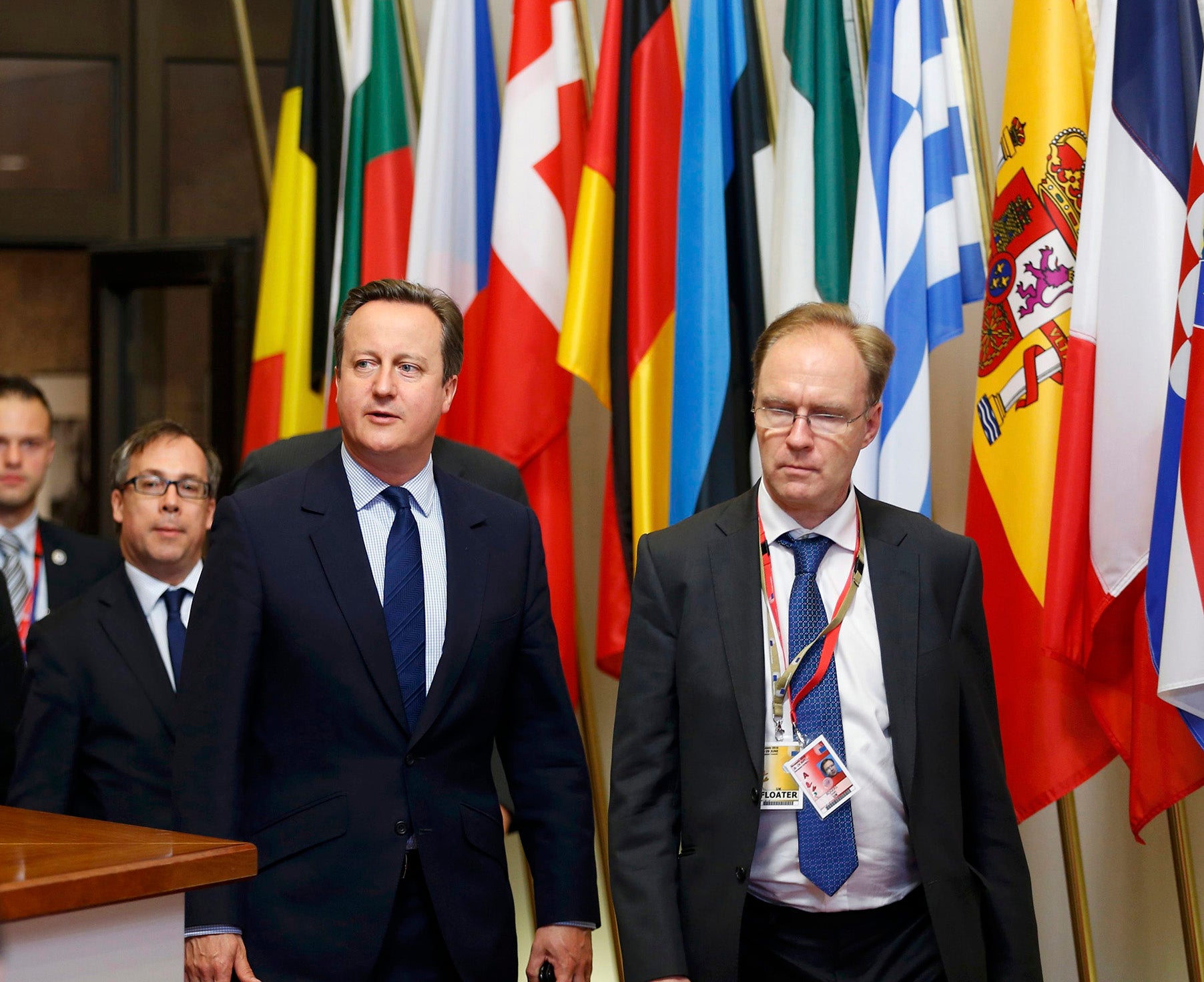Sir Ivan Rogers has gone, but his advice remains – the Government would do well to heed it
As of now, the Government has no published Brexit plan, no top diplomat in Brussels, and no trade negotiators to speak of. It is not a position of strength

Your support helps us to tell the story
From reproductive rights to climate change to Big Tech, The Independent is on the ground when the story is developing. Whether it's investigating the financials of Elon Musk's pro-Trump PAC or producing our latest documentary, 'The A Word', which shines a light on the American women fighting for reproductive rights, we know how important it is to parse out the facts from the messaging.
At such a critical moment in US history, we need reporters on the ground. Your donation allows us to keep sending journalists to speak to both sides of the story.
The Independent is trusted by Americans across the entire political spectrum. And unlike many other quality news outlets, we choose not to lock Americans out of our reporting and analysis with paywalls. We believe quality journalism should be available to everyone, paid for by those who can afford it.
Your support makes all the difference.If, as seems likely, Sir Ivan Rogers’ resignation as the UK’s ambassador to the European Union was “political” rather than personal, it suggests that the signs of disarray in the higher reaches of Government about the Brexit “plan” are indeed correct, with ministers, and perhaps No 10, refusing to accept impartial advice from a dedicated diplomat who tells it like it is. If ministers prefer to inhabit a fantasy world in which the European Union and its member states are prepared to allow the British to “have their cake and eat it”, and will shoot any messenger who brings them contrary news, then the prospects for successful negotiations are grim indeed. Sir Ivan was a man praised by everyone who worked with him, including the last Conservative Chancellor, George Osborne, as a pragmatic, shrewd and successful negotiator. Just the sort of chap, in other words, that Britain needs in Brussels at a time such as this. Even if his departure signalled nothing about what was happening in Whitehall and Brussels, his skills will be missed. As it is, it does appear to be symptomatic of a wider malaise in the process of extricating Britain from the European Union. Sir Ivan’s departure follows that of Jonathan (Lord) Hill, the UK's EU Commissioner, who quit after the vote in the summer. As of now, the Government has no published Brexit plan (though it has promised Parliament and, presumably, the Queen it will have one by the end of March), no top diplomat in Brussels and no trade negotiators to speak of. It is not a position of strength.
It is unsurprising that the Prime Minster, the Foreign Secretary, the International Trade Secretary and the Brexit secretary don’t want to be told that it will take a decade, or more, for the UK to achieve a new trade deal with the EU, as Sir Ivan reportedly has. Ministers are supposed to decide policy, and diplomats to implement that policy, dutifully. Yet No 10 can no more change the laws of gravity than it can the reality of life in the Brussels machine, and if Sir Ivan says it will take 10 years to get things sorted out – and the evidence of experience of trade talks supports that view – then they should take that advice as read. Moreover, some of the leading Brexit editors on the other side have demonstrated their hostility to the UK having anything like a cushy deal on stand-by for the day Britain emerges from the EU. Irrational or not, chauvinism will play its part in these talks, and the prospect of the UK having to fall back on World Trade Organisation rules before a fresh bespoke arrangement is negotiated is becoming ever more likely. Britain will have to suffer and be seen to suffer, to borrow an apt phrase from Voltaire, pour encourager les autres to stick with the EU project.
Some, such as Michael Gove and his Change Britain group welcome the UK leaving the single market and the customs union. It appeals to their buccaneering spirit, though their personal livelihoods do not depend on trade. Business fears it, because it does depend on trade. Falling back on WTO rules could easily happen, though, whether ministers wish it or not. That reality is slowly coming into focus among the more “thoughtful” members of the Government, including the Chancellor, Philip Hammond, who has emerged as the most reluctant of Brexiteers, for which he has been plainly sidelined. Mr Hammond, oddly for a politician, has been more cautious on the point than the civil servant Sir Ivan, but, in front of the Treasury Select Committee at the end of the last parliamentary term, he pushed the notion of a transitional arrangement lasting some years before Brexit finally means Brexit. One wonders how long Mr Hammond will stay patient and in post while the economy suffers irreparable damage.
The truth, and it will continue to be that, is that the UK will have to negotiate principally with the EU bureaucracy rather than some of the more friendly nation states, such as Germany, and that, whatever the British idea of a Brexit plan turns out to be, and however skilled our diplomats and negotiators, it takes two to make a settlement. Still, Sir Ivan would have made a difference, the best of a bad job. He has been ill-used by those he has served with great dedication.
Join our commenting forum
Join thought-provoking conversations, follow other Independent readers and see their replies
Comments